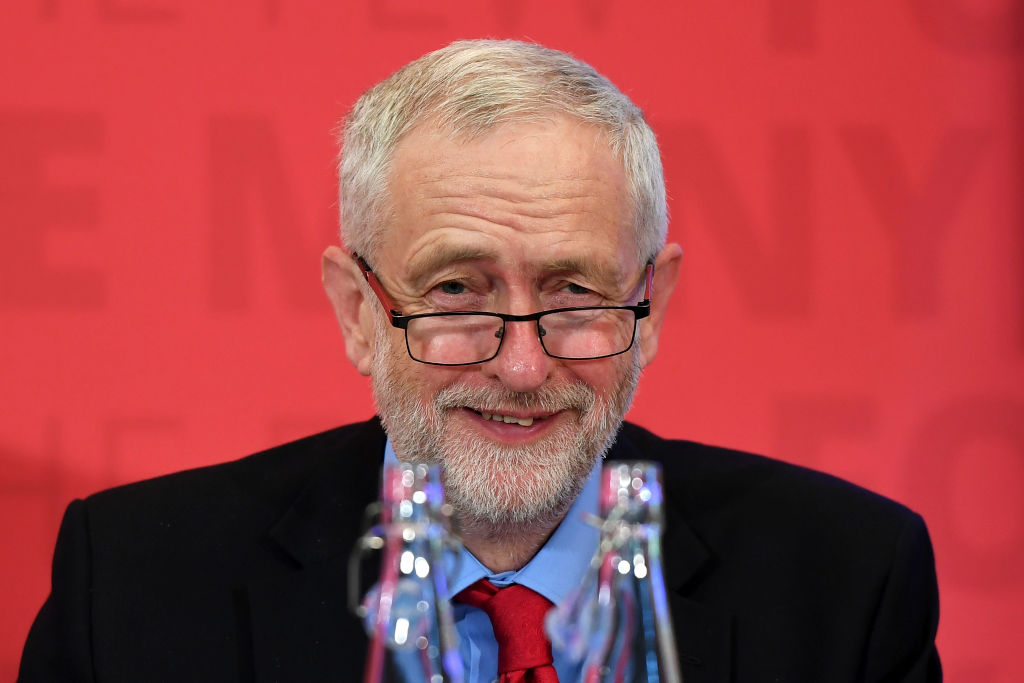It’s understandable that voters have misgivings about Theresa May. She has retreated from much that was appealing about David Cameron’s conservatism: the social justice agenda, for example, and the education reform that was achieving such good results in non-selective schools. She positioned herself as ‘strong and stable’, only to conduct humiliating U-turns — on her first Budget, and on the so-called ‘dementia tax’ in her manifesto — because she had not thought through the policies. This doesn’t necessarily make her a bad leader, but it does cast doubt over her claim to be steely and resolute.
Her manifesto copied too much Labour Party policy, snarling at business and stealing Ed Miliband’s much-derided proposal of an energy price cap. If this was a strategy to attract Labour voters, then it seems to have failed. Instead the opinion polls show an extraordinary surge support for Jeremy Corbyn’s party: the latest YouGov poll shows the Tory lead reduced to three vulnerable points, down from 20 points since the campaign started. She has not sold conservatism in this campaign, but sold herself instead. Her popularity ratings certainly were impressive, but there is more to the Conservative Party. Yet has had almost nothing to say on school reform, the deficit, defence, the jobs miracle or the other issues in which her party has a strong story.
But she is, alas, quite right to say that the choice in this general election is between a Conservative government and a far-left Labour leader who would do immense damage to this country. Mr Corbyn is weighed down by a history of supporting extremists; his fiscal policies are far to the left of any party which has won an election in Britain since the 1970s. He lost a vote of confidence among his own MPs. And yet a week before polling day, the Conservatives are suffering a crisis of confidence, with some polls suggesting that Mrs May could lose her majority. The two-party political system is returning, to Labour’s benefit.
The tragedy of Mrs May’s social care proposal was that it was the right policy based on the right premise: that those who can afford to pay for their care should do so. It was a bold argument to bring to a political campaign: it could have been defended. Yet it emerges that no one in the cabinet had any warning about this policy, so no one was prepared for it. Mrs May has learned the hard way that a party leader needs to work with front-bench colleagues, rather than a couple of trusted advisers. Her failure to widen her circle (or triangle) of trust is her biggest single weakness. The ‘dementia tax’ debacle was the direct result.
If May is to succeed as Prime Minister, she needs to reassess her relationship with her cabinet, and bring in competent ministers with their own ideas and the ability to implement their own agendas. At times, it seems that she values loyalty over talent — a dangerous trait that does not sit well with the British system of cabinet government. The social care issue should have been addressed with candour. There isn’t enough cash to pay for the care of the elderly while simultaneously protecting everyone’s inheritance. The government should have laid out a few options and challenged others to come up with better ideas. Had that been done, we might have ended up with a policy much the same as that laid out in the manifesto, only one that was accepted far more widely.
Similar thought needs to be put into the Brexit process: at the end, huge areas of competence will be handed back to Britain. The government will need a strategy to deal with and take advantage of that. What EU-inspired legislation will we want to keep and what will we want to reform? How much free trade can Britain handle? Should we still impose tariffs on imported sugar or lamb, and if not, is the benefit to consumers a price worth paying for the pain that will be suffered by producers? We deserve more than a back-of-an-envelope response.
This is no time to get bogged down in political minutiae. Token promises of workers’ representation on boards won’t please the unions, but it will increase regulatory burdens for companies. Freeing business from over-regulation was one of the main reasons for Britain voting to leave the EU; so why look for pettifogging laws of our own to impose? What the country needs is a shameless message that it is out to attract business, not to outdo the EU’s social chapter.
If, as expected, Theresa May walks back into Downing Street next Friday morning, she is going to need political friends. She is going to need colleagues who would die in the last ditch for her and an agenda for people to rally around. Her approach to the general election campaign has been based on the opposite conceit: that she is a leader who is larger than her party. If she can disabuse herself of that notion, Mrs May can lead a government which will have deserved electoral victory on its own merits, not — thanks to a weak leader of the opposition — by default.
At the start of this campaign, Mrs May said that Jeremy Corbyn had a realistic chance of victory. This was laughed off but now, due to her mistakes, it is terrifyingly plausible. As a result, it is not safe to abstain in this election. If only to save the Prime Minister from herself, it is necessary to vote Conservative next week.






Comments